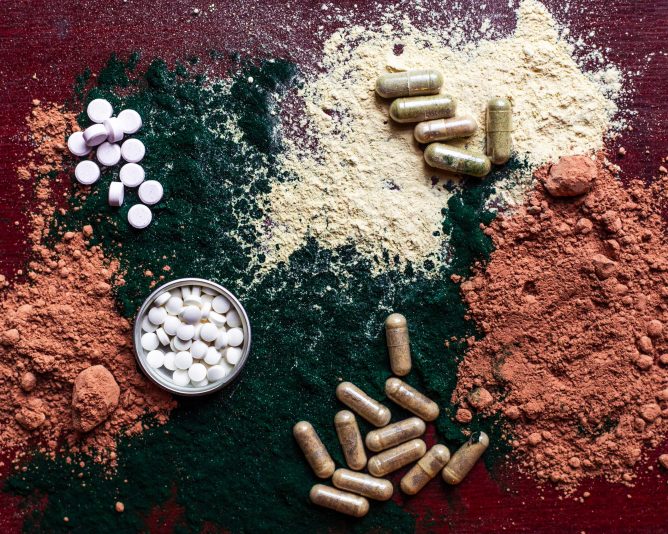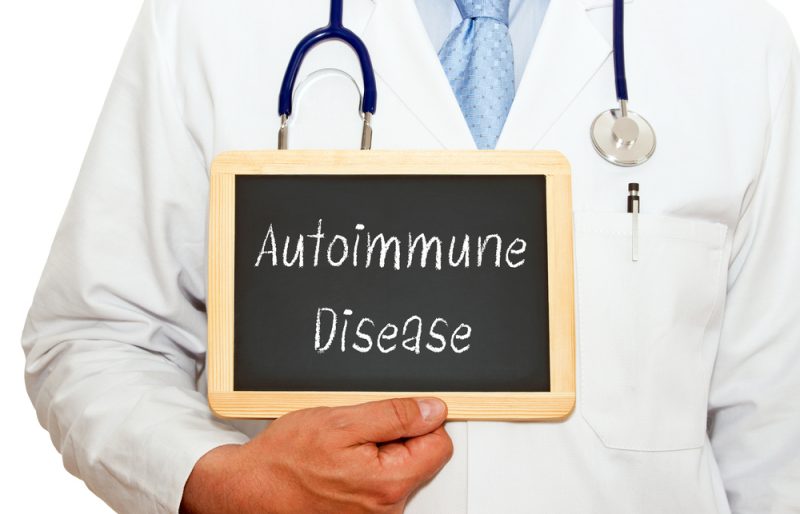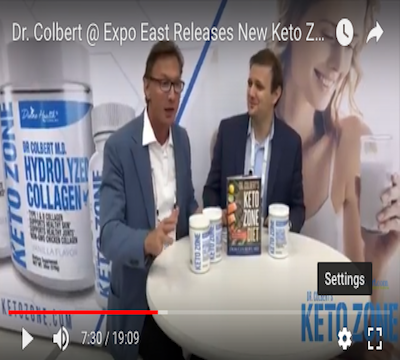For many people, supplements are a necessary addition to a healthy diet. They can deliver key nutrients, even in therapeutic amounts, to support whole-body and system-specific health. For example, most people have a very difficult time getting enough omega-3 fats for a healthy omega-6 to omega-3 ratio without supplements. But, this doesn’t mean you should blindly buy any supplement. Buyer beware: There are often dangerous ingredients in supplements.
Sometimes, the dangerous ingredients are easy to spot. Other times, they are listed within words or other ingredients that make them difficult to identify. Or, they are hidden additives you’d never suspect.
Luckily, you’ve got a trusted source of supplements in Divine Health. Divine Health supplements never contain these dangerous ingredients, are safe and effective, and are formulated to contain the most beneficial nutrients in highly absorbable forms without extra additives you don’t need.
No matter what you’re buying, it’s vital to buy from a source you can trust, and always check the ingredient list. Here’s our guide, and a list of 10 dangerous ingredients in supplements you should avoid.
Supplement Claims, Confusion, and Data
Like most food packaging, supplements often have confusing labels. On the front, you’ll find marketing. Unless it’s a strict health claim, it’s not well regulated.
As the consumer, it’s up to you to investigate beyond these claims.
To start, follow the #1 rule for food packaging: Ignore everything you read on the front side of the packaging. It’s marketing. Some marketing is truthful. Some isn’t.
Then, go to the ingredients list. Although there is still some ambiguity here, it’s your best place for finding dangerous ingredients in supplements since they are typically additives and thickening agents rather than nutrients. This is very important data.
Next, look at the nutrition label. Nutrition labels on supplements can be a bit different than those on foods. On food labels, the nutrition label shows you the macro- and micro-nutrients in the foods, but not the ingredients themselves. However, on supplement nutrition labels, the nutrients are the ingredients. Therefore, you will often find both ingredients (listed as micronutrients) and their amounts, on the nutrition label. This is also important data.
How Can Dangerous Ingredients in Supplements Cause Harm?
There are a few ways dangerous ingredients can cause harm. These include:
- Ingredients that cause direct harm or inflammation to the digestive system. Here’s one example of a common over-the-counter medication that causes this type of harm.
- Ingredients that are suspected carcinogens. Some ingredients in supplements, medications, and manufactured foods are suspected to cause cellular changes, overgrowth, and potentially carcinogenic activity.
- Ingredients that are not listed, but can be contained within other ingredients, and potentially cause harm. For example, some natural substances contain very high levels of lead or mercury. It’s vital to buy your supplements from a trustworthy source that has been tested for toxins.
- Ingredients that do not contain as much of a nutrient as they claim, or more of a nutrient than they claim. While this doesn’t seem like a direct harm, if you believe you’re getting 2000 IU of Vitamin D, but are actually only getting 200 IU, or are getting 20,000 IU unknowingly, there is potential for harm. Furthermore, if the nutrient is in a form that’s not absorbable to the human body, you may think you’re getting a healthy supplement, but in reality you’re throwing money away.
As you consider this, here are 10 dangerous ingredients in supplements to avoid.
10 Dangerous Ingredients in Supplements
Soybean Oil: As we’ve discussed at length, soybean oil is a potent source of processed omega-6 fats. Omega-6 oils actually work against omega-3 oils, and are associated with declines in metabolic health, cardiovascular health, and increased inflammation (1, 2, 3).
Aspartame and Saccharin: Man-made artificial sweeteners have been widely used in “diet foods” and “health foods.” Unfortunately, they can have negative effects on gut bacteria. In fact, animal and human studies have shown that aspartame, saccharin, sucralose, and other artificial sweeteners can impair gut bacteria (4).
In fact, there is documentation of (5):
- Saccharin reducing healthy bacteria growth by 40%
- Sucralose decreasing bacteria by more than 2-fold
- Aspartame increasing the number of harmful bacteria by 10%
Other sugar substitutes, such as the sugar alcohol xylitol, does not seem to affect gut bacteria (6). A good supplement should promote health in your body, including your gut.
Fake Flavorings and Colorings: Food dyes are not benign and have no place in a healthy supplement. Several studies have found that food dyes exacerbate hyperactivity in sensitive children (7). While you may be an adult, this finding confirms that food dyes make their way into our systems and can affect our bodies.
What’s more, Red 3 is a dye that was banned in the 1990s, and then had the ban retracted. Lab studies have shown tumor concerns with Red 3, and many people anecdotal report intolerances for it (8, 9).
Titanium Dioxide: Titanium Dioxide is a toxic additive is a colorant used to make tablets and capsules bright white and is typically used in paint, cosmetics, paper, and sunscreen. This filler has no nutritional value and can actually cause inflammation in the respiratory, digestive, and immune systems (10).
Sodium Benzoate: Sodium Benzoate is used to prolong the life of supplements. This preservative may become a carcinogen substance known as benzene when mixed with vitamin C (11). Ingesting foods or beverages containing that lead to high levels of systemic benzene can cause issues such as stomach irritation, tiredness, dizziness, and even vomiting and convulsions (12). Moreover, sodium benzoate itself has been linked with migraines (13), and it can increase oxidative stress in the body (14).
Sodium Ascorbate, Ascorbyl Palmitate, Cornstarch: Unless it says differently on the label, these ingredients are typically made from genetically modified (GMO) corn. GMO corn is heavily exposed to harmful pesticides which are linked tonegative impacts on human health (15,16,17).
Potassium Sorbate: Potassium Sorbate is another additive used to preserve food and supplements. It may lead to migraines and allergic reactions in sensitive people.
Sulfites: Sulfites can be especially harmful for those who suffer from asthma, causing an increase in symptoms. They may also cause migraines when consumed (18).
Carrageenan: Carrageenan is a natural thickening agent found in many foods and supplements. Unfortunately, it has been linked to blood glucose issues (19), and harmful gastrointestinal effects (20).
Added and Hidden Sugars: Supplements that are in a liquid, powdered, chewable, or gummy form often have added or hidden sugars. These sugars can cause blood glucose issues in some people, and if you’re in the Keto Zone, they can kick you right out. What’s more, many of these sugars will be in liquid or gel form, such as high fructose corn syrup, rice syrup, or cane sugar syrup, and travel through the digestive system and into the bloodstream quickly.
High sugar intake is linked to poor health, inflammation, cardiovascular disease, and more. It’s associated with brain aging, and may even be linked to degenerative diseases (21). Let’s keep sugar out of healthy supplements!
BOTTOM LINE
It’s important to find supplements you can trust. If you haven’t already, take a look at Divine Health’s amazing line-up of supplements including Brain Zone, Nano-Particle Hemp Oil, Carb Assist, and more. And we invite you: Take a hard look at the ingredients. You won’t find harmful colorings, chemicals, additives, or fillers. You’ll only find what’s necessary and industry-best ingredients. You can always trust Divine Health supplements. Buyer beware: Always check for dangerous ingredients in your supplements!




















